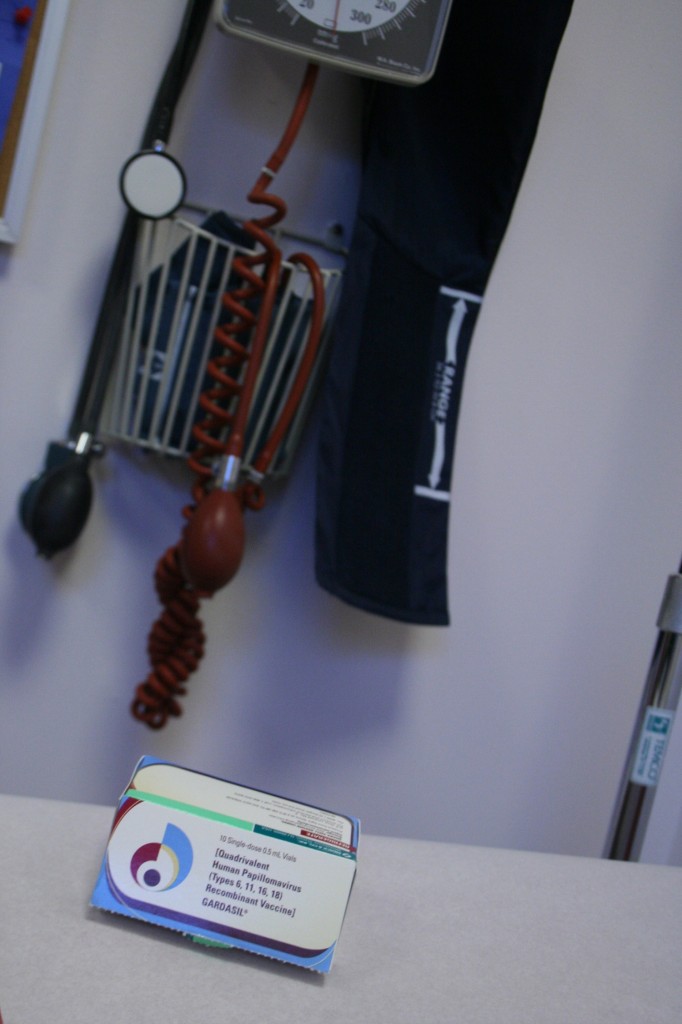Health Services Offers HPV Vaccine
Students Question Why Birth Control is Not Provided
May 30, 2011
Published: November 15, 2007
FCLC—Gardasil, the vaccine that prevents against the four types of the human papillomavirus (HPV) that can cause cervical cancer and genital warts, is being offered at Fordham’s health center, as of this academic year. According to the vaccine’s Web site, HPV is a sexually transmitted disease (STD) that is contracted through sexual activity involving genital contact. Many students feel that there is hypocrisy in providing students with the vaccine, but not providing birth control or condoms, which is prohibited at Fordham because it goes against the teachings of the Catholic Church.

“HPV is a vaccine intended to provide immunity against cervical cancer,” said Joan Cavanagh, associate director of Campus Ministry. “It is not assumed that young girls who receive the vaccine are sexually active, nor is it promoting sexual activity. It is not the subject of any Catholic Church teaching.”
Some students feel that the root of the policy makes sense, despite not agreeing with it. “I don’t think there’s a discrepancy in the policy, because I don’t believe that giving girls and women the HPV vaccine encourages them to have sex,” said Laura Leigh Reifinger, FCLC ’08. “However, I do think that it’s socially irresponsible not to provide sexually active students with tools with which to protect themselves, i.e. birth control,” she said.
Cavanagh said that the reason the school does not provide birth control is that it goes against the Catholic Church. “The Catholic Church teaches that the only appropriate place for the use of birth control, natural methods only, is within a marriage,” she said. “Other than natural methods, the Church is opposed to birth control. Therefore, the health center, in keeping with Church teaching, is not in a position to dispense birth control, even though it is free to offer the HPV vaccine.”
Jack McLaughlin, FCLC ’08, said that both the vaccine and birth control are preventative. “The fact that Fordham’s offering the HPV vaccine acknowledges that students are or will soon be having sex. It is a preventative measure much like contraceptives are for STDs. It is absurd to argue that the vaccine is being given so that future wives won’t get HPV from their husbands.”
Steve Russomano, FCLC ’10, disagrees with this practice. He said that the decision to deny the prescription of birth control is unfair because Fordham is a school with many non-Christian students, and they should be given the option to prevent pregnancy.
However, if a student requires birth control for medical purposes, it may be prescribed to them through the health center. Kathleen Malara, director of Health Services said, “There are medical reasons patients require birth control pills and if diagnosed with one of the conditions, we would prescribe birth control pills just like any other illness requiring medication. If a student tests positive for an STD, of course we would treat them, just like if they tested positive for any other illness,” she said.
Malara said that the policies related to providing birth control are decided by the Catholic Church and general health center polices are decided by her.
“Obviously the health center perpetuates the ideological stance of the university administration, rather than the medical community,” Russomano said. “In my mind, that’s not a good thing. Fordham is not above the law. Birth control is legal and should therefore be dispensed by the health center.”
Malara said, “The thought is that eventually, [younger girls] will someday become sexually active and now have immunity to four of the types of HPV that cause cervical cancer. Now why would [Health Services] as health professionals, just like any other health professional, not administer a vaccine? An STD is a medically diagnosed illness. Pregnancy is not an illness. It is a choice and/or consequence of unprotected intercourse. We at [Health Services] can educate on abstinence and safer sex, however we are not obligated to provide birth control when it is contrary to our mission and beliefs,” she said.
Maggie Perkins, FCLC ’09, said, “I take comfort knowing that my unplanned babies will have a mommy less prone to HPV. Maybe they think you get HPV from holding hands. Honestly though, I am pleasantly surprised that they are offering the vaccine. I know there has been some opposition nationwide by people who think protecting girls from diseases is tantamount to celebrating harlotry.”








